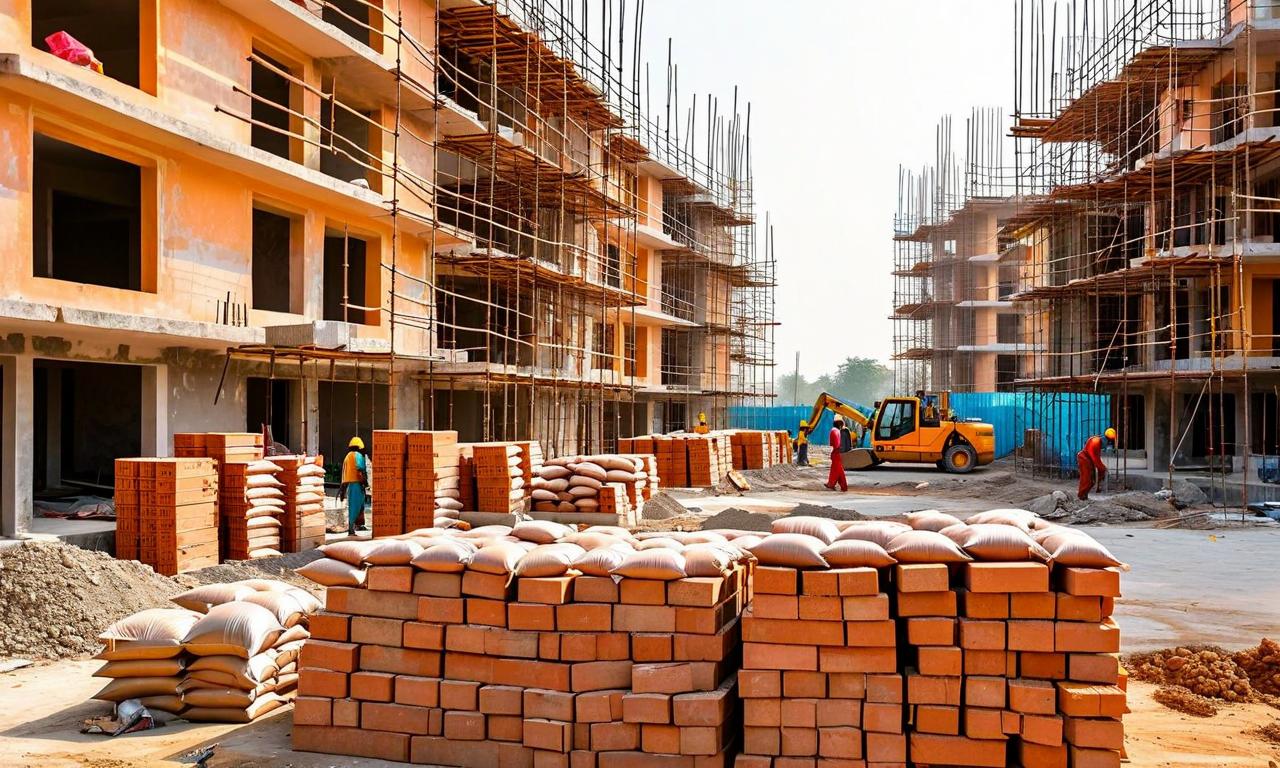Mixed Performance in Real Estate Sector: Signature Global, Phoenix Mills, and Mahindra Lifespaces Report Updates
Signature Global reports 28% decline in pre-sales to ₹2,010 crore and 44% drop in area sold, but sees 20.4% increase in average sales realization. Phoenix Mills shows strong growth with 13% increase in retail consumption, 7.2 lakh sq ft of commercial leasing, and significant rise in residential sales. Mahindra Lifespaces Developers acquires 13.46 acres in Pune with ₹3,500 crore potential and wins redevelopment projects in Mumbai worth ₹800 crore.

*this image is generated using AI for illustrative purposes only.
Recent business updates from three prominent real estate companies reveal a mixed performance in the sector, with varying trends in sales, leasing, and expansion activities.
Signature Global Reports Decline in Pre-Sales
Signature Global, a key player in the real estate market, reported a significant decline in its pre-sales and area sold:
| Metric | Current Period | Change |
|---|---|---|
| Pre-sales | ₹2,010.00 crore | -28.00% |
| Area Sold | 1.34 million sq ft | -44.00% |
| Collections | ₹940.00 crore | +2.00% |
| Avg. Sales Realization | ₹15,000.00 per sq ft | +20.40% |
Despite the decline in pre-sales and area sold, the company saw a slight increase in collections and a notable improvement in average sales realization, indicating a shift towards higher-value properties.
Phoenix Mills Shows Strong Retail and Commercial Performance
Phoenix Mills demonstrated robust growth across its various business segments:
- Retail Consumption: 13% growth across operational malls, with Phoenix Palladium Mumbai leading the charge.
- Commercial Offices: Completed gross leasing of 7.2 lakh square feet.
- Residential Sales: Reported gross sales of ₹139.00 crore, a significant increase from ₹27.00 crore in the previous period.
- Hospitality: St. Regis Mumbai achieved 85% occupancy with an average room rate of ₹17,711.00.
The company's diversified portfolio appears to be performing well, with particularly strong growth in its residential segment.
Mahindra Lifespaces Developers Expands Portfolio
Mahindra Lifespaces Developers reported strategic expansions:
- Acquired 13.46 acres in Pune with an estimated development potential of ₹3,500.00 crore.
- Selected for redevelopment of four residential societies in Mumbai, with a development potential of ₹800.00 crore.
These acquisitions and project selections indicate the company's focus on expanding its presence in key real estate markets.
Market Implications
The varied performance across these companies suggests a nuanced real estate market:
- Pricing Strategies: While Signature Global faced challenges in sales volume, their increased average realization points to a potential shift towards premium offerings.
- Diversification Benefits: Phoenix Mills' strong performance across retail, commercial, and hospitality sectors underscores the advantages of a diversified real estate portfolio.
- Strategic Expansion: Mahindra Lifespaces' new acquisitions highlight ongoing opportunities in both greenfield developments and redevelopment projects.
As the real estate sector navigates through these mixed trends, investors and market watchers should keep a close eye on how these companies adapt their strategies to capitalize on emerging opportunities and overcome challenges in the evolving market landscape.

















































